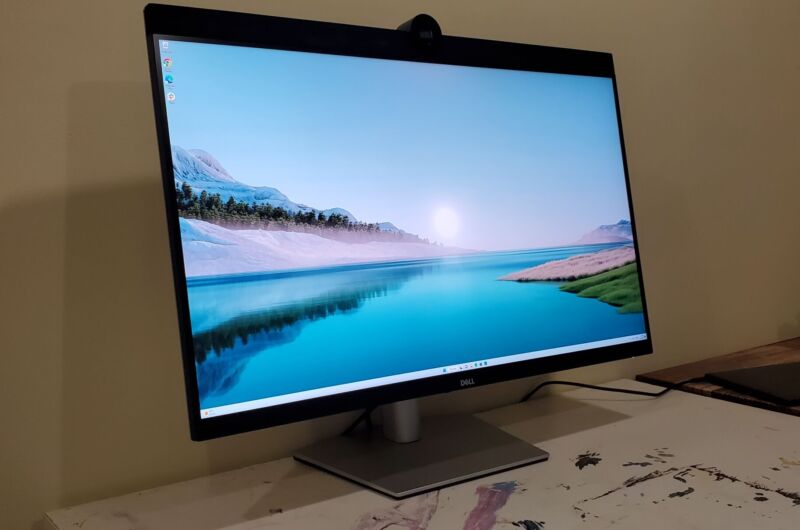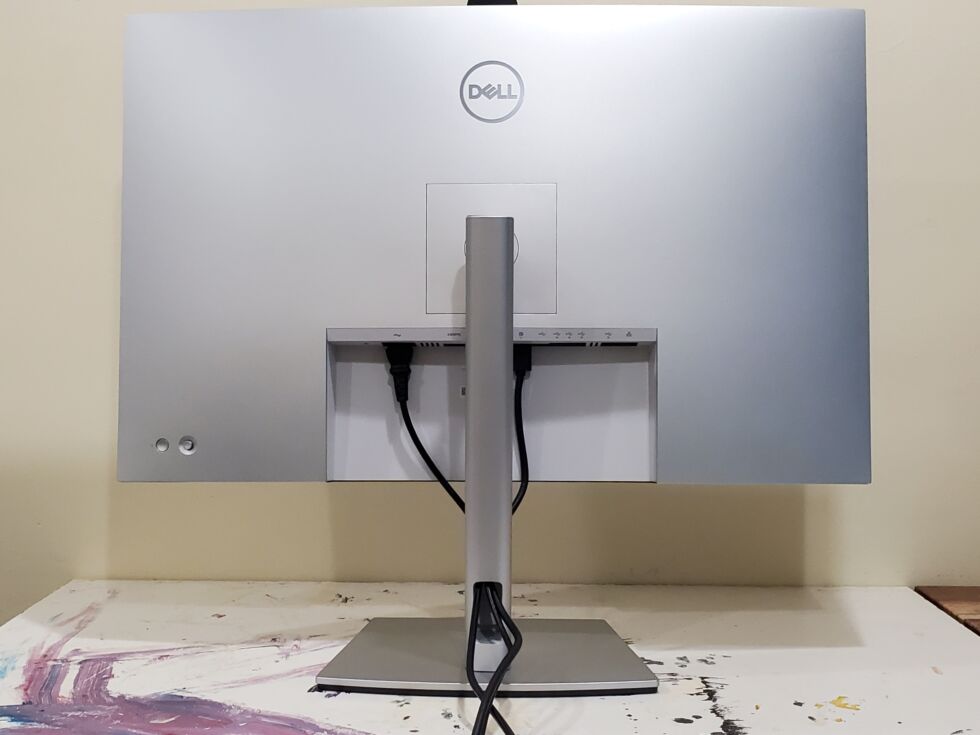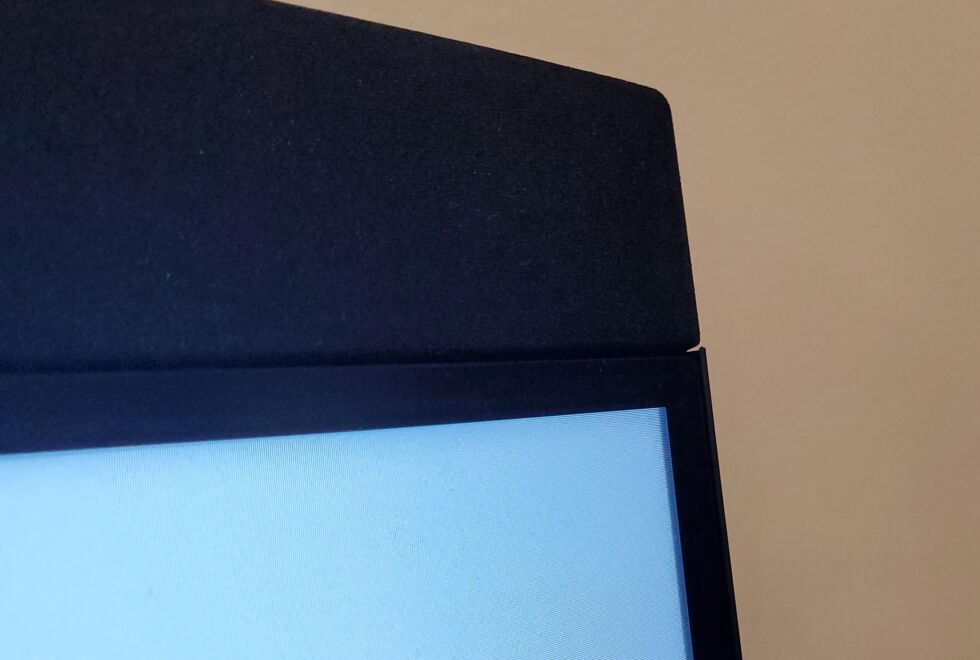Review: Dell’s 32-inch UltraSharp monitor has a high-contrast IPS Black screen

| Specs at a glance: Dell UltraSharp U3223QZ | |||
|---|---|---|---|
| Panel size | 31.5 inches | ||
| Resolution | 3840×2160 | ||
| Refresh rate | 60 Hz | ||
| Panel type and backlight | IPS Black, LCD | ||
| Ports | 2x USB-C upstream, 1x USB-C downstream, 1x HDMI 2.0, 1x DisplayPort 1.4, 1x DisplayPort 1.4 out, 5x USB-A downstream, 1x 3.5 mm, 1x RJ45 | ||
| Size | 28.06 × 9.06 × 19.6-25.48 inches with stand (712.6 × 230 × 497.84-647.27 mm) |
||
| Weight | 26.23 lbs (11.9 kg) |
||
| Warranty | 3 years | ||
| Price (MSRP) | $1,280 | ||
I get it; not everyone finds monitors as exciting as I do. For most people, a little extra color or a larger range of tones don’t really differentiate one screen from another. So I don’t blame Dell for stuffing the UltraSharp U3223QZ 4K monitor with fluff like motion-activated controls, monstrous speakers, and a webcam with presence detection. But after weeks with the monitor, I found none of those extra features as exciting as the monitor’s IPS Black panel.
The U3223QZ has a lot to prove. For one, it debuted at the same MSRP as the 5K Apple Studio Display (starts at $1,600). Since then, Dell has made the price more competitive ($1,280 as of writing), but it’s still expensive for a 31.5-inch monitor. Dell’s U3223QZ is also one of the few monitors to use IPS Black technology, which is supposed to yield about twice the contrast as the typical IPS monitor. I confirmed this with a colorimeter and, more enjoyably, with my eyes.
The bonus features on the U3223QZ have their pluses. The speakers are louder than average and the webcam can automatically log you in and out. But for many people, it makes sense to save money and buy the version of this monitor without the webcam… and without a dedicated Microsoft Teams button.
Table of Contents
Design
If you want an IPS Black panel, 31.5 inches is your largest option. All the panels are 4K, meaning the larger U3223QZ panel has a lower pixel density (139.87 pixels per inch) than its smaller sibling, the 27-inch Dell UltraSharp U2723QE (163.18 ppi). If that bothers you, we’ll remind you of Apple’s similarly priced Studio Display. It crams 5K resolution into a 27-inch (traditional) IPS panel (217.57 ppi), making the two UltraSharps’ pixel density seem paltry.

The U3223QZ has Apple-friendly hues and shapes, including thin bezels, a silver, trapezoid-like base, and a smooth plastic backside in gray. A variety of connectivity options help connect up to two computers simultaneously, but I preferred using USB-C with power delivery. That meant fewer cables running through the stand’s opening, which also helps with basic cable management.
Thicker lines
The U3223QZ has the thin bezels of Dell’s UltraSharp monitor lineup, but it still gives off chunky vibes. That’s because, in addition to slim bezels, the panel is framed by thicker top and bottom borders to accommodate the 1.3-inch speakers and camera (top) and the touch controls (bottom). It is the most visually striking monitor to grace my desk in a while.
Due to technical issues, I checked out two U3223QZ units. Both review units had cloth running across the speakers, and it seemed pretty tight, but that’s still a lot of fabric that could snag over a long period (the monitor has a three-year warranty). Each of my review units also had a pesky gap between the panel’s chassis and the speaker.

Meanwhile, the bottom-left corner of the monitor has touch controls for launching Microsoft Teams, starting or ending a call, adjusting the volume, and toggling the mic and camera on and off. The buttons only light up when a hand is nearby or when the mic’s mute or camera shutter is activated, which is a good thing because the bright lights are somewhat distracting.
The controls are not programmable, which is a shame for someone who doesn’t use Teams.

The U3223QZ’s stand supports -5 to 21-degree tilting, swivels 30 degrees to the left or right, and allows a 5.88-inch height adjustment. Admirably, the monitor gets lower than most, with just 1.5 inches between the desk and the monitor’s chin at the lowest setting. For comparison, the Samsung S80UA 4K monitor I have sits at least 2.75 inches above the desk.
https://arstechnica.com/?p=1881111